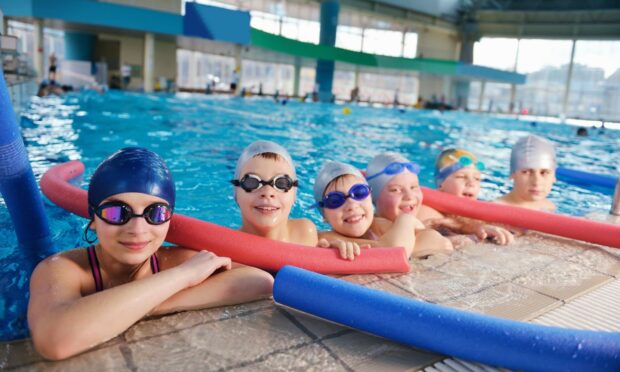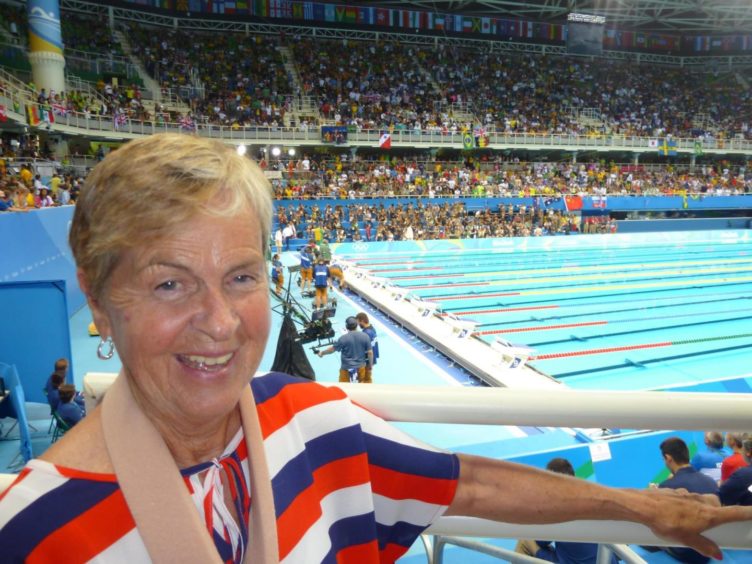Should swimming lessons be a statutory requirement in the primary school curriculum in Scotland?
Swimming and water safety has been a statutory element of the national curriculum for PE in England since 1994.
This means that every child there should leave primary school with the skills to keep themselves safe while swimming.
However, this is not the case in Scotland, with swimming lessons instead provided on a council-to-council basis.
Now a petition has been launched urging the Scottish Parliament to ensure that all children will have had the opportunity to learn to swim by making it a statutory requirement to provide lessons in primary schools.
It has been backed by more than 1,000 signatures and with little over two weeks left for the public sign, the numbers are expected to rise.
“My worry is the older ones”
In 2017, it was estimated that 40% of children in Scotland left primary school not being able to swim.
Fife swim coach Gina Logan, who is also the former president of the Scottish Amateur Swimming Association and Scotland team manager at the 2006 Commonwealth Games, says the younger children are when they learn how to swim, the more beneficial it can be.
She said: “There are around 6,500 children in swimming lessons in Fife but my worry is the older ones who won’t come to swimming lessons.
“By the time you get to eight, nine, ten years old and you can’t swim, you’re not going to do it because you’re embarrassed.”
“Long ago when I was a student, you would do an intensive course during the holidays and they came in the same age group.
“At Easter time you would do a week of lessons just for S1 or S2 pupils so they were not embarrassed by being alongside five or six year olds.”
Gina believes existing resources need to be utilised more effectively, and posed the question as to whether secondary school pupils could help teach younger children in the pool.
She said: “I have four sixteen-year olds who help me every Saturday with lessons (at the local swim club) and they have all gone through a coaching programme so they are qualified.”
“So I’m sure if they got out of school for two periods a week or something, what a difference it would make.
“If there are sports leaders going into schools to teach football, rugby or netball, why can’t they go across to the sports centre and help to teach swimming?”
What is the picture in Tayside and Fife?
Swimming lesson provision varies across Tayside and Fife, with some councils offering up to 15 weeks of lessons to primary school pupils and others only providing lessons to young people who cannot already swim.
Dundee City Council (DCC) offers a six week swimming programme, consisting of three weeks of universal provision followed by three weeks of targeted provision.
This is usually delivered during the summer term at the P5 or 6 stage. Due to Covid, DCC is looking to introduce this programme in the summer term 2022.
In Angus, all primary pupils get a 15-week block of swimming lessons, generally around the P6 stage.
“If there are sports leaders going into schools to teach football, rugby or netball, why can’t they go across to the sports centre and help to teach swimming?”
Gina Logan, Fife swim coach
Perth & Kinross Council offers swimming lessons to all primary school pupils as part of the curriculum.
Primary school pupils are provided with one block of 10 swimming lessons during their attendance at primary school.
Generally, most pupils attend swimming in P5 but pupils may receive their block of 10 swimming lessons at any time between P4 and P7 depending on the size and composition of the classes in their individual school.
Due to Covid-19 restrictions, school swimming lessons are currently suspended.
Fife Council offers “targeted confidence swimming lessons” to young people who are non swimmers.
Programmes have been run in holiday periods but have been limited since the beginning of the pandemic. These are expected to pick up again as restrictions continue to ease.
What does the Scottish Government say?
A Scottish Government spokesperson said: “Within schools, Curriculum for Excellence’s flexible guidelines allow teachers to decide upon the content of lessons that best meets the local needs and circumstances of all pupils.
“However, we are working with stakeholders consider greater opportunities for children and young people to engage in community swimming lessons.
“Ensuring that every child learns to swim is a priority for both Scottish Swimming and the Scottish Government.
“The National Learn to Swim Framework, which is supported by Scottish Water and delivered by aquatic partners every week, already helps children to become safe, competent, and confident swimmers and these water safety themed lessons are an essential part of the framework to help educate on water safety.”











